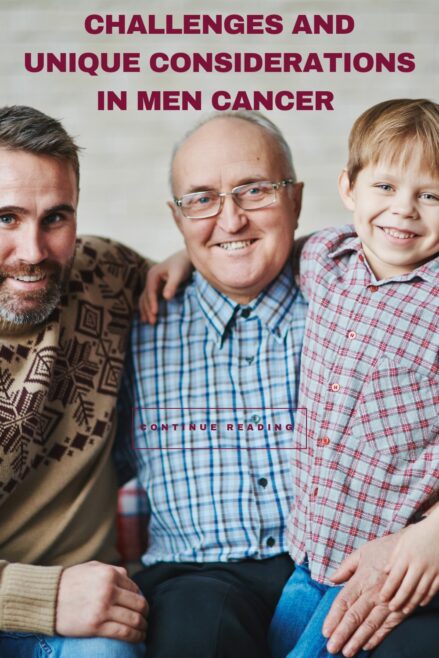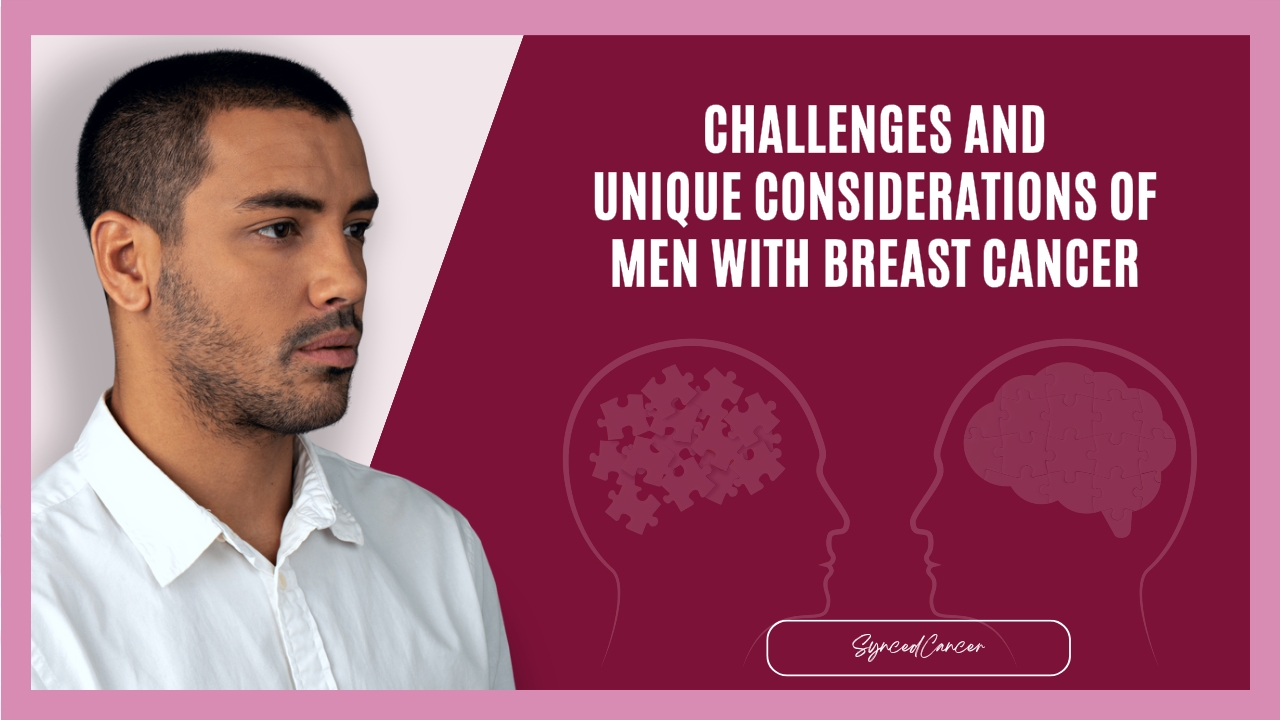Breast cancer is commonly associated with women, but men can also develop the disease, though it is rare. Men with breast cancer face a unique set of challenges and considerations that differ significantly from those of their female counterparts. These challenges include delayed diagnosis, limited awareness, psychological impacts, and a lack of tailored research and support services. Addressing these issues requires a comprehensive understanding of the factors that contribute to the unique experience of men with breast cancer.
1. Delayed Diagnosis
One of the most significant challenges for men with breast cancer is delayed diagnosis. Several factors contribute to this issue:
- Lack of Awareness: Men are generally less aware of the possibility that they can develop breast cancer. This lack of awareness extends to both the general public and healthcare providers. As a result, symptoms such as lumps, nipple discharge, or changes in breast tissue are often overlooked or misinterpreted as less serious conditions.
- Misdiagnosis: Because breast cancer is so rare in men, healthcare professionals might not initially suspect it. Symptoms can be attributed to gynecomastia (benign enlargement of male breast tissue) or other non-cancerous conditions, leading to misdiagnosis or delayed investigation.
- Reluctance to Seek Medical Help: Men may be less likely to seek medical attention promptly due to cultural or personal beliefs about masculinity and health. This delay in seeking help can result in the cancer being diagnosed at a more advanced stage, which often correlates with a poorer prognosis.

2. Lack of Awareness
The limited awareness about breast cancer in men has far-reaching implications:
- Educational Gaps: There is a significant gap in public health education regarding male breast cancer. Campaigns and health initiatives predominantly target women, leaving men without essential information about the risks and symptoms.
- Healthcare Professional Training: Many healthcare providers lack specific training on recognizing and managing breast cancer in men. This can lead to insufficient screening practices and delays in diagnosis, further complicating patient outcomes.
- Research and Funding: Due to its rarity, male breast cancer receives less attention in research and funding compared to female breast cancer. This results in a lack of tailored treatment protocols and clinical trials for men, leading to treatment plans based on data primarily derived from female patients.
3. Psychological and Social Impacts
The psychological and social impacts of breast cancer on men are profound. The stigma associated with having a “woman’s disease” can lead to feelings of isolation, embarrassment, and emasculation. Men with breast cancer may struggle with their identity and self-esteem, particularly because societal norms and expectations do not typically associate men with breast cancer. The stigma associated with men with breast cancer is another significant challenge:
- Shock and Denial: Men diagnosed with breast cancer often experience initial shock and denial. Given the low awareness and common misconception that breast cancer is exclusively a women’s disease, many men are unprepared for the diagnosis. This shock can be overwhelming, leading to a state of denial where the individual may struggle to accept the reality of their condition.
- Stigma and Isolation: The societal perception of breast cancer as a female illness contributes significantly to the emotional burden on men. Men with breast cancer may feel embarrassed or emasculated, fearing judgment or misunderstanding from others. This stigma can lead to social withdrawal and isolation, as men may avoid discussing their condition or seeking support.
- Depression and Anxiety: The emotional toll of a breast cancer diagnosis can manifest in depression and anxiety. Men may grapple with fears about their mortality, the effectiveness of treatments, and the potential impacts on their personal and professional lives. Anxiety about recurrence and the side effects of treatments can also contribute to mental health challenges.
- Body Image and Masculinity: Treatments for breast cancer, such as mastectomy or hormonal therapy, can affect a man’s body image and sense of masculinity. Concerns about physical appearance and sexual health can lead to a diminished sense of self-worth and confidence, further exacerbating psychological distress.
- Fear and Uncertainty: The uncertainty surrounding the disease’s progression, treatment outcomes, and the possibility of recurrence can create a constant undercurrent of fear. This ongoing stress can interfere with daily functioning and overall quality of life.
Addressing the Challenges
To address these unique challenges, several steps can be taken:
- Increasing Awareness: Public health campaigns should include information about breast cancer in men, highlighting the importance of early detection and educating men about the symptoms. Healthcare providers should also receive training to better recognize and manage breast cancer in men.
- Encouraging Prompt Medical Attention: Efforts should be made to encourage men to seek medical help at the first sign of symptoms. Reducing the stigma around men with breast cancer can play a significant role in this, as men may feel more comfortable seeking care if they do not fear judgment.
- Enhancing Research and Funding: More research is needed to understand the biological differences between breast cancer in men and women. Increased funding for male-specific breast cancer research can lead to the development of tailored treatment protocols and improved outcomes.
- Providing Informational Support: By providing valuable information about the disease, treatment options, and coping mechanisms cancer patients can make inform decision. Knowledge empowers patients, helping them make informed decisions about their care and feel more in control of their situation.
- Creating Support Networks: Establishing support groups and resources specifically for men with breast cancer can provide a much-needed sense of community and understanding. These networks can offer emotional support, share practical advice, and help men feel less isolated in their journey.
Conclusion
Men with breast cancer encounter a distinct set of challenges that require targeted attention and solutions. Increasing awareness about breast cancer in men is essential to encourage earlier diagnosis and reduce the stigma associated with the disease. There is also a pressing need for more research focused on breast cancer in men to develop effective, personalized treatment protocols. Additionally, expanding advocacy and support services to include men will help address the psychological and social impacts they face. By acknowledging and addressing these unique considerations, we can improve outcomes and provide better support for men battling breast cancer.



What do you think?
It is nice to know your opinion. Leave a comment.